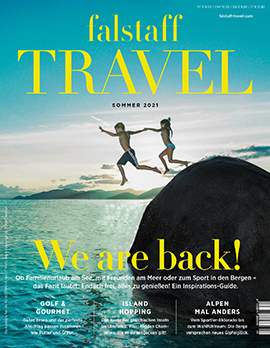
First Nations in Canada Show the Country From Their Perspective
How Indigenous travel experiences in Canada can make a difference - and how Canada's First Nations enrich every vacation.
October 11, 2024
Canada celebrates the National Day for Truth and Reconciliation every year at the end of September. This day celebrates the reconciliation of immigrants with the First Nations in Canada. The day is therefore dedicated to the indigenous population. The so-called "Orange Shirt Day" was created by a boarding school student in 2013 and has been an official holiday for four years. Since then, events and activities have been held across Canada on September 30 to recognize and celebrate Indigenous cultures. Fortunately, the First Nations in Canada now occupy the important place they deserve. They also play a major role in tourism by providing extraordinary travel experiences. Here are five examples:
Pure wilderness with the Cree
© Nibiischii
Adventurous travelers should join the Cree natives in the forests of Québec. This is where you'll find the Nibiischii: two huge protected areas covering an area of around 24,000 square meters. This "land of water" is located northwest of Lac St-Jean and surprises with thousands of rivers and lakes. At Waconichi Lake, guests can spend the night in privately run cabins and accommodation. Anglers, canoeists and water sports enthusiasts are in the right place in summer. And in winter, you can try snowshoeing, fat biking, ice skating and snow yoga. There are indigenous-inspired games and freshly grilled food from the campfire as well as courses to learn indigenous arts and crafts.
Spiritual horses at the adventure farm
© Ottowa Tourism
Very close to Ottawa, you'll find the Mādahòkì adventure farm, a place where you can experience indigenous culture. The 164-hectare farm is a venue for seasonal cultural events. There's also a market for indigenous handicrafts. Visitors can feed the animals and hire snowshoes in winter to discover this side of nature. A special feature is the small herd of Ojibwe Spirit Horses. This breed is indigenous, but threatened with extinction. They have a special spiritual significance. Over 40 different First Nations artists present their handicrafts at the marketplace.
On the trail of buffalo with the Métis
© Cooper&O'Ha
One and a half hours north-east of Edmonton lies the Métis Crossing meeting center. It introduces visitors to the mestizos, descendants of white settlers and indigenous women from the 18th century, and their history. They're considered a distinct population group in Canada. Here, guests can take part in cultural activities and also stay overnight with First Nations in Canada. The three-day tour "Beavers, Bisons and People: Our Promise to Wahkotowin" is a brand new addition to the offer. This cooperation with Elk Island National Park enables tours with indigenous guides.
Northern Lights hunt with Joe Bailey
© Joe Bailey
When you think of Northern Lights, you might think of Norway. But of course the impressive celestial phenomenon also exists in Canada's North West Territories. The city of Yellowknife is particularly famous for it. Indigenous Joe Bailey from the Dene people is an "aurora hunter" and owner of the tour operator North Star Adventures. He and his employees know Yellowknife like the back of their hand and facilitate aurora watching with lots of mystical stories from the Dene culture.
Culinary delights with Jenni Lessard
© Tourism Saskatchewan
The native Métis travels with the guests of Adventure Destinations International for six days through the prairie province of Saskatchewan. Along the way, guests not only learn about the indigenous culture of one of Canada's First Nations. They also have the opportunity to immerse themselves in the local cuisine. Jenni Lessard offers delicacies such as bison jerky, dried berries, wild rice, teas and pulses. Guests eat locally and authentically. Stops on the journey include Saskatoon, Prince Albert National Park and the Missinipe in Lac La Ronge Provincial Park. The final stop is the Wanuskewin Heritage Park. This is a traditional indigenous gathering place near Saskatoon.






